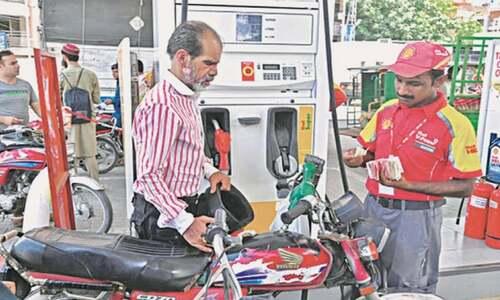PARIS: France unveiled a raft of measures on Wednesday to curb radicalisation and better monitor militants two weeks after an Islamist killing spree in Paris sent shockwaves across Europe.
Jitters from the worst attack on French soil in decades have spread to the country’s neighbours and the European Union promised a new counter-terrorism strategy would be ready by May.
Also read: EU holds talks on terror threat after Paris attacks
As Paris scrambled to ramp up the battle against terrorism, four men were charged with helping one of the Islamist gunmen responsible for the January 7-9 shootings which left 17 people dead.
Prime Minister Manuel Valls announced more than $800 million would be spent over the next three years on “the fight against terrorism”.
The attacks by known Islamists exposed weaknesses in French intelligence, and Mr Valls said some 3,000 people with militant ties needed to be monitored, adding that the number of people with links to “terrorist networks” in Syria and Iraq had soared 130 per cent in the past year.
In response, France will create 2,680 new jobs to fight extremism, just under half of them in the intelligence services.
And President Francois Hollande said France would slash 7,500 fewer military jobs than planned as part of steep defence cuts.
“The number one priority is to further reinforce the human and technical resources of intelligence services,” Mr Valls said, adding that a draft law to do just that would be debated in parliament in early March.
A large part of the effort to combat extremist violence would be concentrated on fighting radicalisation, and Mr Valls announced an extra 60 Muslim ‘chaplains’ would be hired on top of the 182 who already worked in jails.
Two of the Paris gunmen, Amedy Coulibaly and Cherif Kouachi, are believed to have turned to radical interpretations of Islam in prison after coming under the influence of extremist detainees.
France is already experimenting with the isolation of radical prisoners in one jail, and Mr Valls wants to extend this to other penitentiaries.
The government is also targeting the internet, with the creation of an informative website on radical indoctrination and more resources to monitor “cyber jihadism”.
Paris prosecutor Francois Molins said four men believed to have assisted Coulibaly were charged with conspiracy to commit terrorist acts, and one of them for possession and transport of weapons.
Investigators discovered that three of the men had on several occasions visited specialist stores around Paris to “buy equipment” such as knives, a taser gun, tactical vests and pepper spray.
The attacks have forced France to face up to its failure to integrate poorer, migrant families, with Mr Valls saying on Tuesday that the country was plagued by “social and ethnic apartheid”.
He said he would also propose a cross-party debate on bringing back the offence of “national disgrace” — used after World War II against collaborators with the Nazi regime and abolished in 1951.
Less severe than treason, and allowing authorities to strip citizens of some rights, Mr Valls said that reviving the offence would be a strong symbol of “the consequences of... committing a terrorist act”.
The attacks in Paris were followed by a flurry of police activity across Europe with raids taking place on suspected Islamist cells in Belgium and Germany.
European Commission First Vice President Frans Timmermans said the 28-nation bloc was determined to respond to the threat in keeping with its core values of tolerance and inclusion.
“Whether they are Jewish, Muslim, Christian or atheist, everybody has a place in this society,” he said.
Mr Timmermans said Europeans must use education and other tools “to make sure that we don’t lose part of our population to extremism, to fanaticism, to exclusion”.
He also raised the possibility that the EU could look at tightening up its Schengen passport-free system so as to boost checks on its external border to pick up militants.
Published in Dawn, January 22nd, 2015
On a mobile phone? Get the Dawn Mobile App: Apple Store | Google Play













































